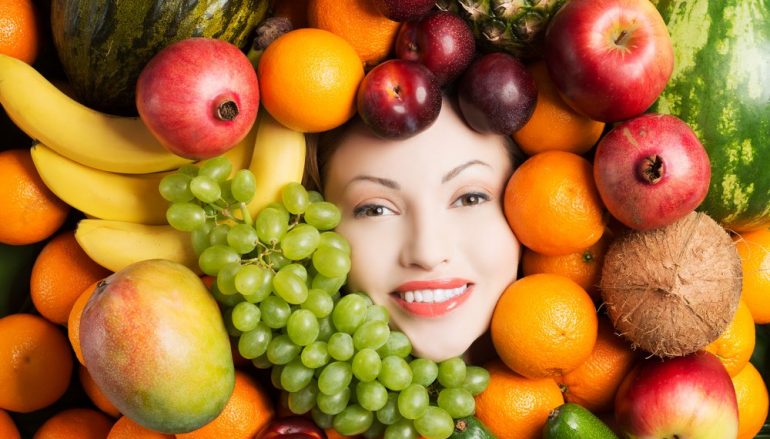Food and nutrition have always been essential for good looking skin. Today, I’m going to show you some foods you can include in your diet to improve your skin and delay the signs of aging.
- Carbohydrates play a key role in providing energy, dietary fiber and a large amount of vitamins and minerals, especially fruits and vegetables, whole grains such as oats and amaranth, they will help us have a well-functioning digestive system, among other functions, to keep our body in balance and see it reflected through the skin.
- Lipids play an important role in your nutrition because they are present in your cells in the form of “fatty acids” and are essential for maintaining the normal structure and function of your skin.
Here are some fatty acids you can include in your diet:
- Vegetable oils: linoleic, sunflower, olive.
- Omega-rich foods: fish (salmon, tuna, trout), avocado, nuts and seeds.
The lack of fatty acids in the skin can accelerate the aging of our skin and certain skin disorders such as dry skin and dermatitis, among others. That’s why you should include fats in your diet, always preferring unsaturated fats to saturated fats.
- Proteins provide your skin with structural elements for tissue synthesis and repair.
- Animal proteins: red meat, fish, dairy products, poultry (chicken and turkey).
- Plant proteins: Legumes such as beans, lentils, chickpeas, broad beans, etc.
Their deficiency can have direct effects on the skin, nails and hair.
By including protein in your diet, your skin will be healthier, firmer and smoother thanks to the production of proteins such as collagen and elastin, thus helping to prevent or slow down aging.
- The vitamin D found in salmon, tuna, eggs, liver and dairy products will help maintain and bind calcium in your bones, provided it is activated by exposure to UV light.
Remember that the fixation of calcium through vitamin D will help prevent certain alterations such as dermatitis, it will promote the absorption of fatty acids which we have already seen have many benefits for the skin.
- In addition, include in your diet
- Seeds: Nuts, almonds, sunflower seeds, peanuts, etc.
- Vegetable oils: Olive, flax, sunflower, safflower, etc.
- Whole grains: Oats, amaranth, rice, wheat, etc.
- Green leafy vegetables: spinach, chard, mushrooms, etc.
- Other Essential Vitamins Great for Your Skin
- Vitamin E will help you reduce the effects of free radicals, slowing down aging since this vitamin is a natural antioxidant. We can find antioxidants in wild fruits such as strawberries, raspberries, cherries and blackberries, vegetables (chard, spinach, mushrooms) seeds such as almonds, walnuts, sunflower.
- Vitamin A, present in foods such as carrots, broccoli, spinach, mushrooms, beef, chicken, tuna, salmon and; especially, in carotenoids which have a high affinity with the skin due to their powerful antioxidant and preventive action of cell damage. The pigments contained in these give the skin a slight color, giving it a healthy appearance.
- The B complex vitamins present in all foods of animal origin such as red meat, fish, poultry and dairy products, improve blood flow allowing a greater supply of oxygen to the outer layers of the skin, function as antioxidants, have the to retain water avoiding premature dehydration of the skin, thus avoiding the appearance of furrows or wrinkles on the skin.
- Vitamin C and its relationship with the skin is essential, since it is essential for the formation of collagen, one of the main proteins that make up the skin, it also exerts an antioxidant effect and is involved in the immune response. You can ingest it through foods such as pineapple, orange, guava, kiwi and grapefruit.
- Some minerals such as zinc, selenium, calcium and copper work as antioxidants, provide structural maintenance in tissues, helping the production of elastin in the skin, working together with some vitamins. By consuming them, your skin will be softer and smoother, thanks to the elastin that these nutrients provide.
To sum up, we can say that dietary factors can modulate the function of the skin, intervening in its structure, color and physiological properties, thus contributing to the moisturizing and firmness of mature skin, keeping it healthy.
What do you say, when will you start nourishing your skin? Remember to always consult a specialist since it will depend on your own body, the diet that you must implement.



One thought on “Eat Your Way to Marvelous and Glowing Skin”